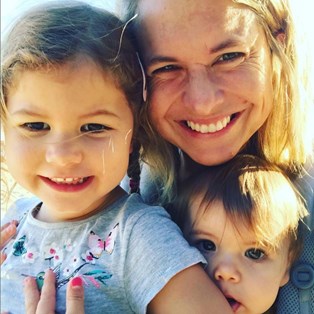Three signs your child has a mental health issue

And what you can do to fix it
October is Mental Health Month, giving us a chance to think about our mental health and that of our families.
Sadly, 75 per cent of mental illness starts before the age of 24, so as parents and caregivers it’s important to be on the lookout for signs our children are struggling.
Davina Donovan is a psychologist and the founder of Speak Teen, a new service designed to prevent and treat mental illness in young people. She says there are a few key signs which parents can watch out for.
1 Change in behavior
Look out for anything that is not ‘normal’ for your child. “There is not such thing as normal or not normal but be aware of your child’s norm and respond to deviations from this,” she advises. “Changing behavior can indicate a problem.’
2 Withdrawal from social activities
Withdrawing from activities or friends and family, also known as avoidance, is another key sign that all is not well. “Avoidance is a sign of anxiety and needs to be nipped in the bud ASAP to prevent further problems,” Davina says. “Anxiety is one disorder that starts to present earlier on, so early detection and prevention is key.”
3 Change in moods
While young people are very prone to highs and lows in their emotions, if your child is not shifting back to their normal self then this needs to be addressed, Davina says. “In young men, anger is not uncommon and in young women, sadness.”
The good news is, there is plenty we can do to support our children.
“Engage in activities that they love even if you don’t,” Davina advises. “Arrange one-on-one time with each child if you have multiple children. Listen. Really listen to them. Allow them to be heard no matter what they have to say.”
If your child does have mental health issues, Davina suggests getting them into counselling or coaching early on to build resiliency. “Get educated as a parent so that you are equipped and skilled to help them,” she says.
“The simplest way to coach emotions is to validate the way your child feels. Emotions are normal and should not be avoided or punished. Help kids find healthy outlets for their emotions to prevent future problems.”

Nicola Conville has worked as a journalist and editor for more than 20 years across a wide range of print and online publications. Her areas of expertise are parenting, health and travel. She has two children; Lucy, age eight, and Nathan, age five.













